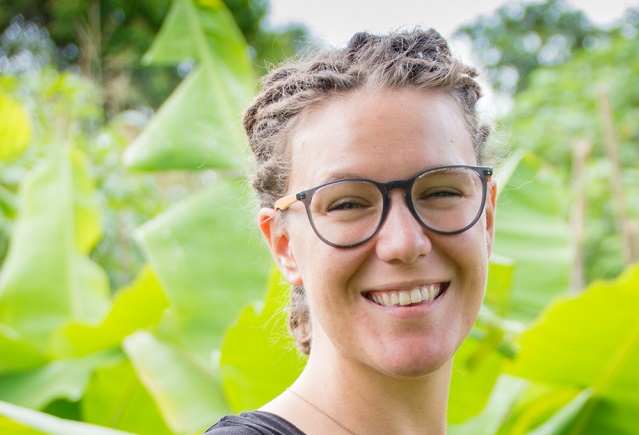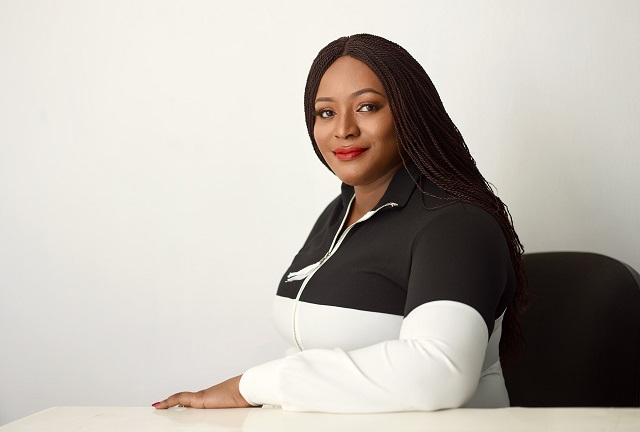Female entrepreneurs are disrupting the health sector, bringing quality products to rural households, and helping smallholder farmers make a living. Around the globe, they are building successful and sustainable companies. Yet, they often are faced with challenges around entrepreneurship and funding that are a result of the persistent gender financing gap.
Storytelling not only makes their entrepreneurial journeys visible; it also reveals their achievements, their challenges, and their lessons learned along the way. These stories are not only inspiring, but they are ultimately a way to create networks and community. It is our vulnerability and beliefs that connect us. And finding the right funding at core is about that: about transparency and creating lasting relationships based on a common ground of aspiring to growth.
In the new series Impact Stories, the Inclusive Business Action Network collaborates with inclusive business entrepreneurs from around the world to tell their stories and highlight what makes them uniquely attractive for investors. The stories aim to support the featured entrepreneurs to find the right funding to scale. The Impact Stories feature in-depth interviews and engaging videos, enabling founders to communicate their impact and the stories behind it.
Here, four inspiring female entrepreneurs give a glimpse into their Impact Stories.
Dr Julian Omalla, Delight Uganda
- Read Dr Omalla's story
-
Why did you found Delight Uganda?
I have suffered as a woman, and I have seen fellow women suffer in South Sudan and northern Uganda. Supporting them is my dream. Luckily, my family is always there for me to ensure that I can realise this dream.
What does Delight Uganda do?
In 2012, we bought 1700 acres of land in Nwoya district in northern Uganda. There, we plant mangoes, lemons, and guavas to produce juice and seedlings. In our orchards, we also intercrop with food and cash crops to improve the income and food security of local communities. In addition, we run Delight Farm Institute, where we offer farm-based training to members of the local community. Women profit the most from our business model.
What advice can you give to other entrepreneurs?
As entrepreneurs, we should be mindful of our faith and our families. Business is not everything. I want to appeal to every woman: You must have time for your children. It costs a society to raise a child. Let us live up to our responsibility, parent our children, train them how to work, and I think the world will be a better place to live in.

"I am a social entrepreneur, a mother, a wife, a grandmother, and the CEO of Delight Uganda. In 1996, I founded Delight Uganda to support fellow women in South Sudan and Uganda. This is my passion."
Linda Wamune, Econome Kenya
- Read Linda's story
-
Why did you found Econome Kenya?
Over seventy percent of Kenyans live in rural areas. They are very disadvantaged compared to people living in the cities: Quality products don’t reach these areas, and, even if they do, most people cannot afford to buy them on cash.
A majority of these households are managed by women. These women are the ones that suffer the most. They need to walk long distances to fetch water and cook without having a clean and efficient stove.
Being a woman myself, I go through the challenges that they go through. So, why shouldn’t I be at the forefront of helping them to overcome those challenges?
What does the company do?
At Econome, we cross the last mile and distribute home utility products like solar lighting, clean cooking and grain storage facilities to rural households in Kenya. In doing so, we create income opportunities for female sales agents. Our mission is to become a trusted partner providing easy access to a variety of quality, affordable home utility goods in rural areas.
What are your recommendations for other inclusive business leaders?
The biggest challenge is access to finance, especially for local businesses. To start off, you must have your own money. Establishing an inclusive business is a big sacrifice. You need to know you are in for a tough ride, so belt up and be prepared for the turbulence. Absorb the shocks, learn from them, and carry on. Once you have your vision, just keep building it and do not give up.

"A majority of rural households are managed by women. Being a woman myself, I go through the challenges that they go through. So, why shouldn’t I be at the forefront of helping them to overcome those challenges?"
Katherine Milling, Nature's Nectar
- Read Katherine's story
-
Why did you found Nature's Nectar?
In 2014, I came to Zambia as a Peace Corps volunteer. I was fascinated by bees and wanted to support local communities – so I decided to stay.
What does Nature's Nectar do?
Traditionally, Zambian farmers built a beehive by stripping a tree of its bark. This used to be sustainable, but the growing demand for Zambian honey has turned it into a risk for the forests. We use Kenyan top-bar beehives instead, made of local pinewood. They take far less timber to produce and last ten times as long as traditional beehives. With these hives, we produce honey of a much better quality and can pay a premium price to farmers.
Our model is more inclusive than traditional beekeeping, since women do not need to climb trees or spend days in the fields. Instead, the hives are hung and harvested by zone lead farmers. While we had to overcome some initial concerns about female beekeepers, they have been well accepted by now.
What recommendations can you make to other entrepreneurs?
Be yourselves, stay true to your mission, and find people that support you. Find mentors. Also, do not scale too fast. We took a very slow approach to make sure that we have our system in place before starting to expand.

"Our model is more inclusive than traditional beekeeping, since women do not need to climb trees or spend days in the fields. Instead, the hives are hung and harvested by zone lead farmers."
Temie Giwa-Tuboson, LifeBank
- Read Temie's story
-
Why did you found LifeBank?
I founded LifeBank in 2016 to support mothers suffering from Postpartum Haemorrhage. This is a condition where women just continue to bleed after childbirth. In Nigeria, it is the leading cause of maternal mortality. There is a shortage of donor blood, and poor infrastructure makes it hard to deliver it on time without breaking the cold chain. Also, doctors often do not know which blood banks have the required blood group in stock. LifeBank wants to save these women. We believe that no one should lose her life to bring new life to the world.
What is the special value LifeBank creates for patients?
We ensure the availability, affordability, and accessibility of critical medical supplies. To do so, we use data analytics, agile logistics, and a cross-subsidisation model. If you call us at 2:00 am, we will do whatever it takes to get the supply to wherever you need it. Since I founded LifeBank, we have delivered over 45,400 units of critical supplies and helped save over 20,000 patients. About three quarters of these people were from low-income communities.
Are there any recommendations you can give to other inclusive business companies?
Look for neglected problems that can be solved with innovative solutions and remain resilient on the journey.

"I believe that no one should have to die because they have no access to medical supplies or because they can’t afford them. When there is a hurdle, we have to cross it because so many people need us."
